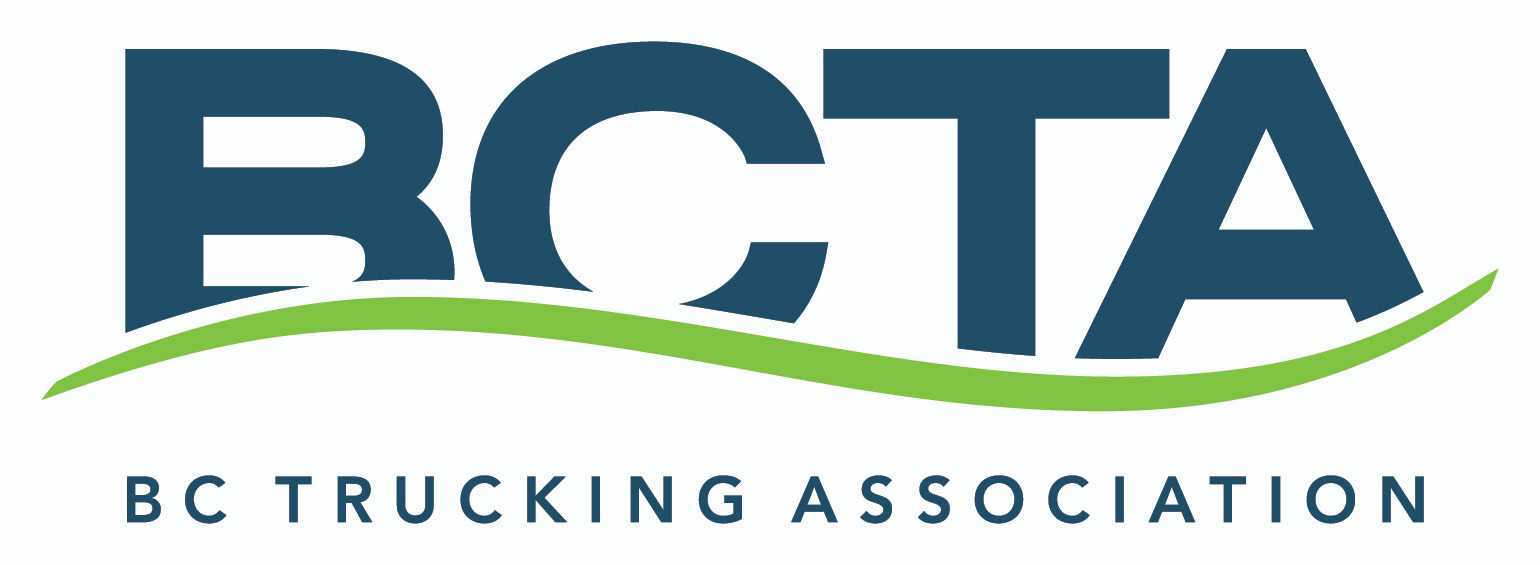
Your IFTA and IRP Specialists
Here to make your life easier!

Prorate Plus
Who We Are?
We specialize in supporting companies with the International Registration Plan (IRP) and International Fuel Tax Agreement (IFTA). These are cooperative programs to collect and distribute registration and fuel tax revenue between 48 states in the US and 10 Canadian provinces. The programs benefit carriers by consolidating licensing and reporting requirements through the base (home) jurisdiction.

Natasha Braun.
Our Founder
We Value your Time
We Understand and We’re Here to Simplify
If you are based in a member jurisdiction and operate a qualified motor vehicle in 2 or more member jurisdictions, you should register. If you usually operate your vehicles only in one jurisdiction, but make occasional trips outside the base jurisdiction, you may elect to purchase temporary trip permits and fuel tax permits. Permits have to be requested for each jurisdiction outside of the base. Each jurisdiction has their own process and options for temporary permits.A Qualified Motor Vehicle is a motor vehicle used, designed, or maintained for transportation of persons or property and:
1) has two axles and a gross vehicle weight or registered gross vehicle weight exceeding 26,000 pounds or 11,797 kilograms; or
2) has three or more axles regardless of weight; or
3) is used in combination, when the weight of such combination exceeds 26,000 pounds or 11,797 kilograms gross vehicle or registered gross vehicle weight.
IRP
If you’re looking to apply for an IRP account, there are a few things to keep in mind. Each jurisdiction has their own process but the requirements are almost the same. First, you have to have the National Safety Code/Safety Fitness Certificate. Some jurisdictions require a course and exam to get certified. Next, you must prove residency in your base jurisdiction by providing back-up documents such as corporate documents, building lease agreement/mortgage document, utility bills, tax filing documents etc. The base jurisdiction address must be on them. Having all of the documents prepared will save time during the application process. Once the account is created, we will add the vehicle information and documents. IRP requires ownership documents for each vehicle (must be signed), and often a commercial inspection, authorization for vehicle services form and plating letter from the lease company (if leased). Several pieces of information are used to calculate IRP fees like vehicle purchase date and price, GVW and distance travelled by the IRP vehicles. In the first year, average distance will be used which means part of the fees will be in USD and part will be CAD. This is because the company doesn’t have kilometres filed with IFTA yet. If trucks don’t actually travel in the other IRP country, the fees will be charged in the home currency for the following years.
IFTA
Some jurisdictions include IFTA registration when applying for IRP but for many it’s separate. The process is less daunting than IRP. They require basic information about the company operations and usually the corporate account number and business number. There must be a physical address in the base jurisdiction and a mailing address to receive the truck decals. Some jurisdictions have an online application process and some require forms to be filled out and sent in. Once you receive the decals, you can apply them to the truck and start tracking ALL distance and ALL fuel for that truck. We must file the distance and fuel quarterly. For both IRP and IFTA, renewals are annual.
If you have the time and capacity to learn these processes, we can assist you with that as well. We will guide you through the process as you create your accounts and start managing your IRP and IFTA accounts independently. We are committed to ensuring your success, which is why we will remain available for the first few IRP transactions and IFTA filings to provide support.
If you are based in a member jurisdiction and operate a qualified motor vehicle in 2 or more member jurisdictions, you should register. If you usually operate your vehicles only in one jurisdiction, but make occasional trips outside the base jurisdiction, you may elect to purchase temporary trip permits and fuel tax permits. Permits have to be requested for each jurisdiction outside of the base. Each jurisdiction has their own process and options for temporary permits.A Qualified Motor Vehicle is a motor vehicle used, designed, or maintained for transportation of persons or property and:
1) has two axles and a gross vehicle weight or registered gross vehicle weight exceeding 26,000 pounds or 11,797 kilograms; or
2) has three or more axles regardless of weight; or
3) is used in combination, when the weight of such combination exceeds 26,000 pounds or 11,797 kilograms gross vehicle or registered gross vehicle weight.
IRP
If you’re looking to apply for an IRP account, there are a few things to keep in mind. Each jurisdiction has their own process but the requirements are almost the same. First, you have to have the National Safety Code/Safety Fitness Certificate. Some jurisdictions require a course and exam to get certified. Next, you must prove residency in your base jurisdiction by providing back-up documents such as corporate documents, building lease agreement/mortgage document, utility bills, tax filing documents etc. The base jurisdiction address must be on them. Having all of the documents prepared will save time during the application process. Once the account is created, we will add the vehicle information and documents. IRP requires ownership documents for each vehicle (must be signed), and often a commercial inspection, authorization for vehicle services form and plating letter from the lease company (if leased). Several pieces of information are used to calculate IRP fees like vehicle purchase date and price, GVW and distance travelled by the IRP vehicles. In the first year, average distance will be used which means part of the fees will be in USD and part will be CAD. This is because the company doesn’t have kilometres filed with IFTA yet. If trucks don’t actually travel in the other IRP country, the fees will be charged in the home currency for the following years.
IFTA
Some jurisdictions include IFTA registration when applying for IRP but for many it’s separate. The process is less daunting than IRP. They require basic information about the company operations and usually the corporate account number and business number. There must be a physical address in the base jurisdiction and a mailing address to receive the truck decals. Some jurisdictions have an online application process and some require forms to be filled out and sent in. Once you receive the decals, you can apply them to the truck and start tracking ALL distance and ALL fuel for that truck. We must file the distance and fuel quarterly. For both IRP and IFTA, renewals are annual.
If you have the time and capacity to learn these processes, we can assist you with that as well. We will guide you through the process as you create your accounts and start managing your IRP and IFTA accounts independently. We are committed to ensuring your success, which is why we will remain available for the first few IRP transactions and IFTA filings to provide support.
Our Advantages
Simplification
Our goal is to simplify complex information and streamline processes. We accomplish this by preparing all necessary components and coordinating them efficiently, so that applications are completed as quickly as possible.
Increased Efficiency
Our deep understanding of IRP requirements allows us to thoroughly review all documents beforehand, reducing the need for time-consuming rounds of communication with IRP staff. Our top priority is to get your trucks on the road quickly, minimizing downtime and maximizing productivity.
Compliance
Engaging the services of an experienced third-party professional in IRP and IFTA is critical for motor carriers to maintain compliance with regulations, thereby preventing costly penalties and fines.
Cost Saving
Our expertise in these programs allows us to identify cost-saving opportunities and share this knowledge with you. If these tasks are handled in-house, new hires have to be trained from scratch, which can be time-consuming and could result in important details being overlooked during the learning process. Training employees can be costly.
HOW IT WORKS

We get you registered with the program or programs you need. We guide you through everything and review all the documents for anything that could hold up the process.

Next we add the initial vehicles into the IRP system and send you the IRP invoice that has to be serviced at a local registry office. They provide the plates, cab card and registration. You apply the IFTA decals to trucks and start tracking fuel and distance for those vehicles.
Once set up and rolling, we monitor the accounts. For IRP, you send us requests to add or remove vehicles, replace lost registration documents, replace plates or change weights. We send you the appropriate documents to service at your local registry office. For IFTA, we go through the data monthly to find any discrepancies or missing information. We file the fuel tax return quarterly and send the confirmation to you.
Our Advantages
Simplification
Our goal is to simplify complex information and streamline processes. We accomplish this by preparing all necessary components and coordinating them efficiently, so that applications are completed as quickly as possible.
Increased Efficiency
Our deep understanding of IRP requirements allows us to thoroughly review all documents beforehand, reducing the need for time-consuming rounds of communication with IRP staff. Our top priority is to get your trucks on the road quickly, minimizing downtime and maximizing productivity.
Compliance
Engaging the services of an experienced third-party professional in IRP and IFTA is critical for motor carriers to maintain compliance with regulations, thereby preventing costly penalties and fines.
Cost Saving
Our expertise in these programs allows us to identify cost-saving opportunities and share this knowledge with you. If these tasks are handled in-house, new hires have to be trained from scratch, which can be time-consuming and could result in important details being overlooked during the learning process. Training employees can be costly.
How It Works

We get you registered with the program or programs you need. We guide you through everything and review all the documents for anything that could hold up the process.

Next we add the initial vehicles into the IRP system and send you the IRP invoice that has to be serviced at a local registry office. They provide the plates, cab card and registration. You apply the IFTA decals to trucks and start tracking fuel and distance for those vehicles.
Once set up and rolling, we monitor the accounts. For IRP, you send us requests to add or remove vehicles, replace lost registration documents, replace plates or change weights. We send you the appropriate documents to service at your local registry office. For IFTA, we go through the data monthly to find any discrepancies or missing information. We file the fuel tax return quarterly and send the confirmation to you.
Our Associate Members


